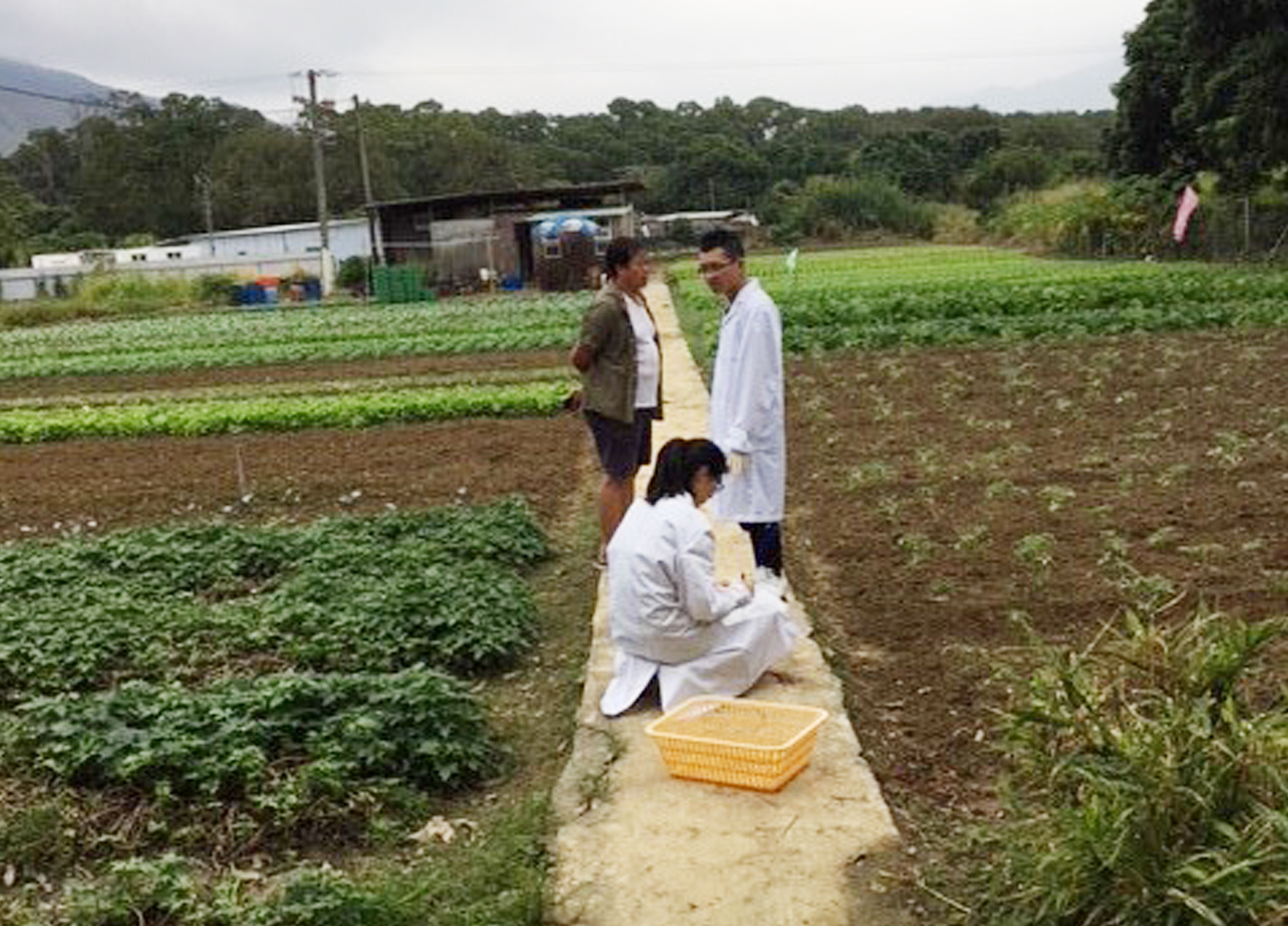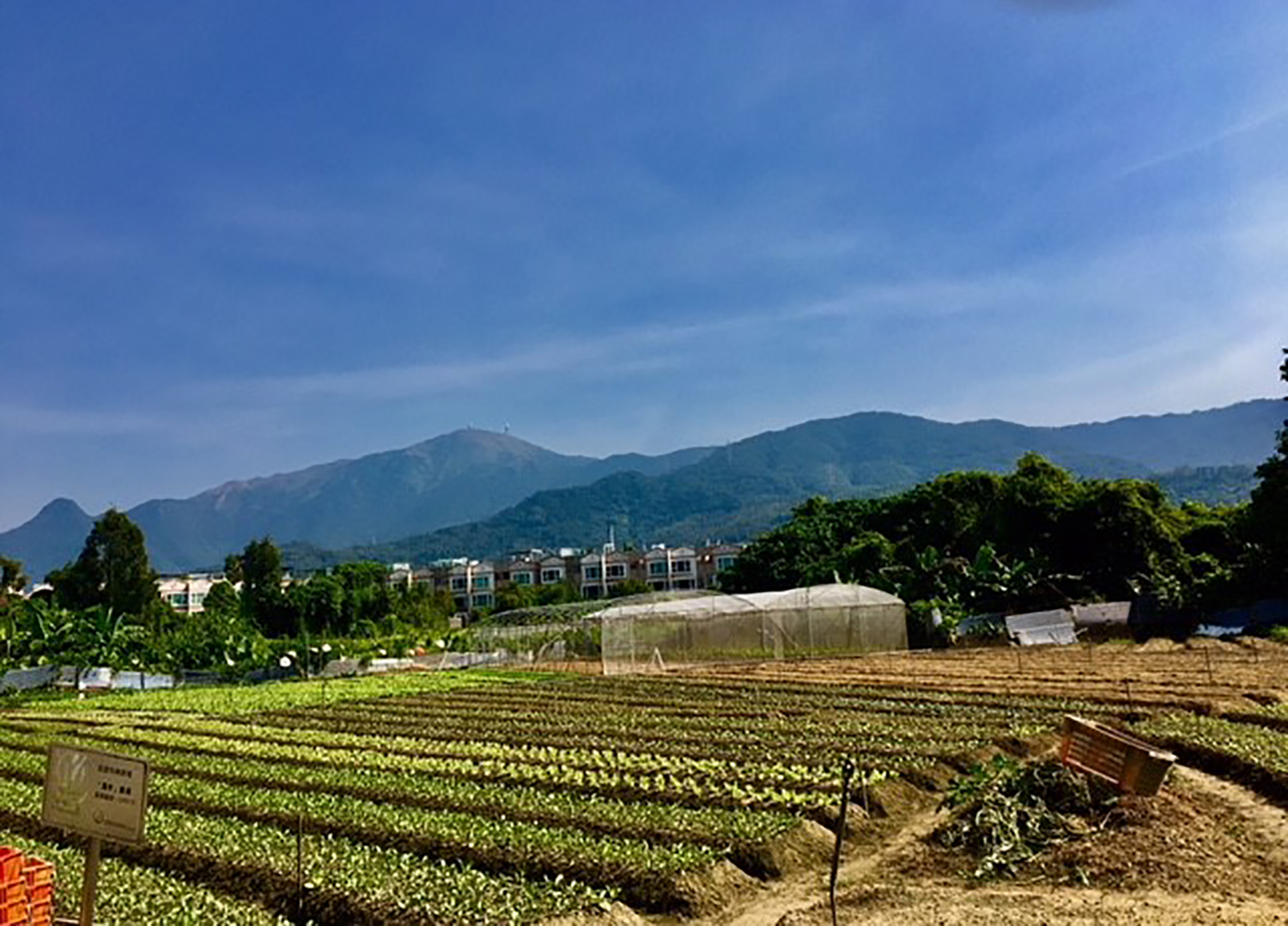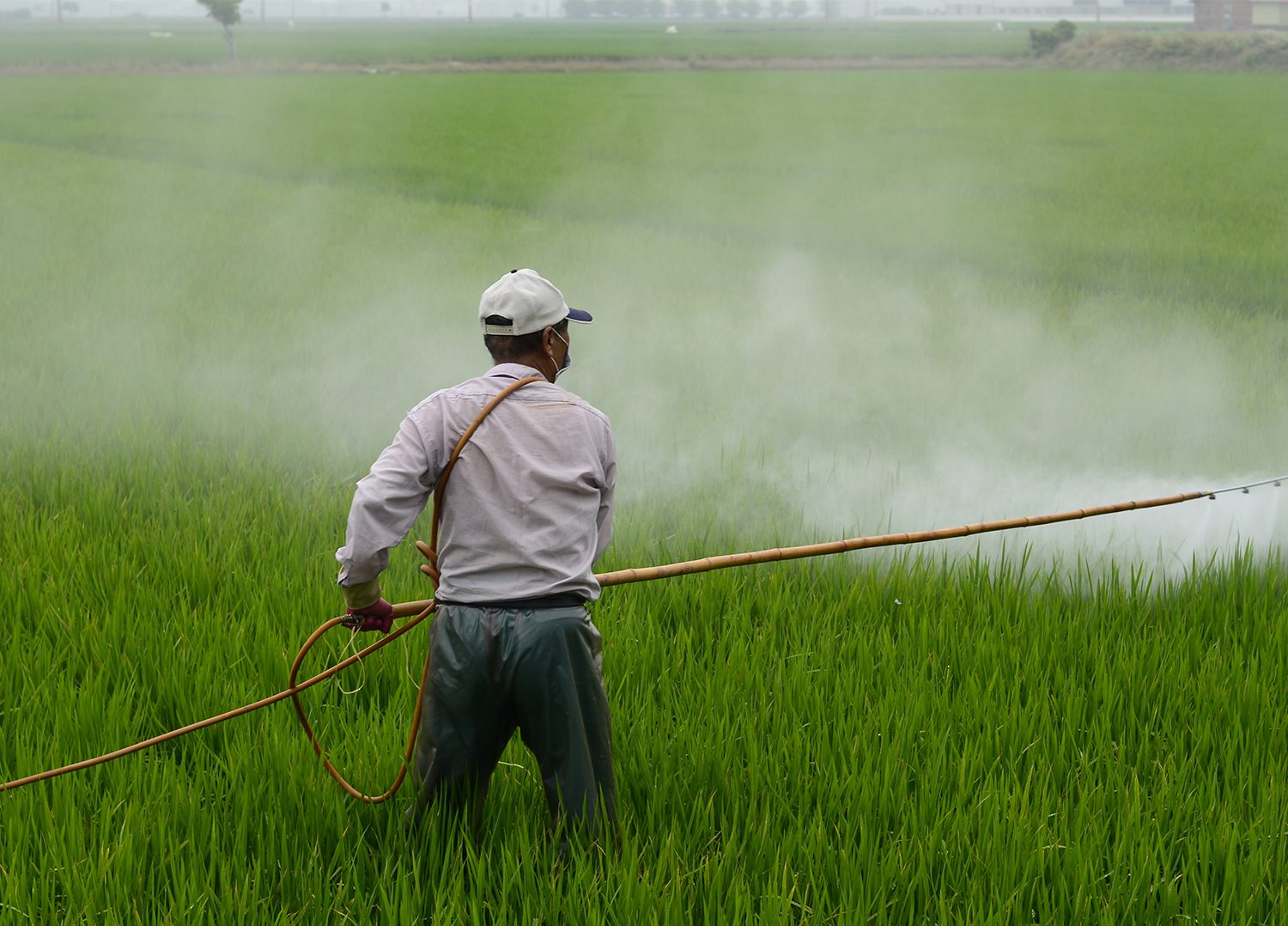Soil building practices such as crop rotations, inter-cropping, symbiotic associations, cover crops, organic fertilizers and minimum tillage are central to organic practices. Currently most of the organic farmers face the major challenges on the soil fertility, pest control issues, crop viability, seed supplies and soil tillage problems. There is a lack of good understanding of the soil nutrient condition so farmers cultivate only based on their own experience of applying organic fertilizer. Unlike the conventional chemical fertilizer, the behavior of organic fertilizers is of slow release characteristic. Therefore, a good understanding of the soil health condition is a must to improve crop performance and enhance the yield.
Soil sampling started in late October 2017 on certified organic farms listed on the database provided by HKORC. Collected samples were then treated and subjected to analysis in the laboratory for different chemical and physical parameters such as Nitrogen, Phosphate and Potassium concentrations along with soil texture to determine overall soil quality and nutrient levels for each organic farm.
All information collected in the database will form the groundwork for the development of precision fertilizer application research with crop trials to be carried out in the future. Furthermore, soil nutrition database will also form the backbone of the extension service provided by the IBA. With the use of the database, recommendations and expertise on soil nutrition applications can then be provided to participating farmers so that they will be well informed to make accurate management decisions to improve efficiency in fertilizer use. Finally, increased efficiency of soil nutrient management will improve overall soil health and the environment in the long run.




